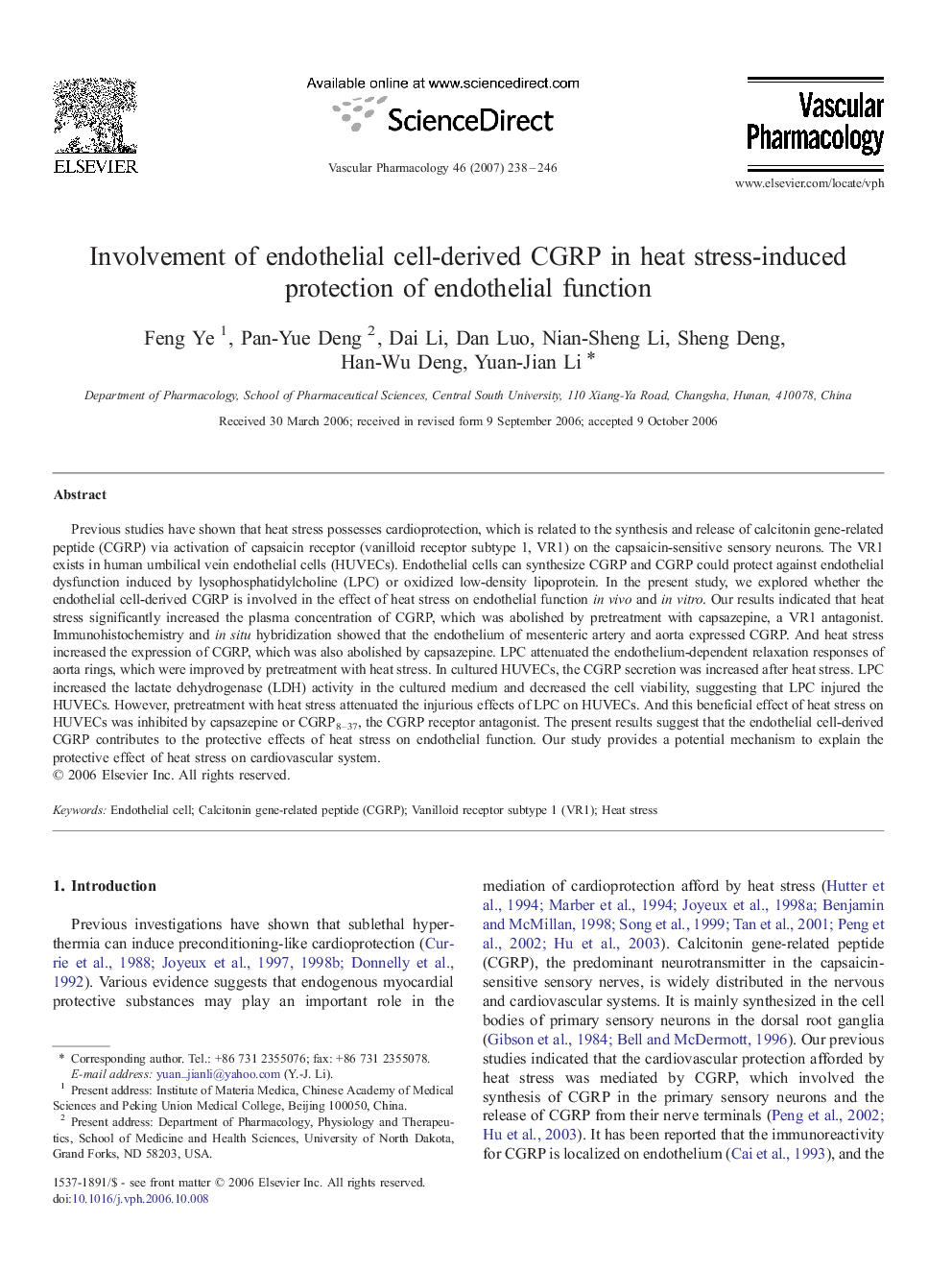| کد مقاله | کد نشریه | سال انتشار | مقاله انگلیسی | نسخه تمام متن |
|---|---|---|---|---|
| 2574941 | 1129724 | 2007 | 9 صفحه PDF | دانلود رایگان |

Previous studies have shown that heat stress possesses cardioprotection, which is related to the synthesis and release of calcitonin gene-related peptide (CGRP) via activation of capsaicin receptor (vanilloid receptor subtype 1, VR1) on the capsaicin-sensitive sensory neurons. The VR1 exists in human umbilical vein endothelial cells (HUVECs). Endothelial cells can synthesize CGRP and CGRP could protect against endothelial dysfunction induced by lysophosphatidylcholine (LPC) or oxidized low-density lipoprotein. In the present study, we explored whether the endothelial cell-derived CGRP is involved in the effect of heat stress on endothelial function in vivo and in vitro. Our results indicated that heat stress significantly increased the plasma concentration of CGRP, which was abolished by pretreatment with capsazepine, a VR1 antagonist. Immunohistochemistry and in situ hybridization showed that the endothelium of mesenteric artery and aorta expressed CGRP. And heat stress increased the expression of CGRP, which was also abolished by capsazepine. LPC attenuated the endothelium-dependent relaxation responses of aorta rings, which were improved by pretreatment with heat stress. In cultured HUVECs, the CGRP secretion was increased after heat stress. LPC increased the lactate dehydrogenase (LDH) activity in the cultured medium and decreased the cell viability, suggesting that LPC injured the HUVECs. However, pretreatment with heat stress attenuated the injurious effects of LPC on HUVECs. And this beneficial effect of heat stress on HUVECs was inhibited by capsazepine or CGRP8–37, the CGRP receptor antagonist. The present results suggest that the endothelial cell-derived CGRP contributes to the protective effects of heat stress on endothelial function. Our study provides a potential mechanism to explain the protective effect of heat stress on cardiovascular system.
Journal: Vascular Pharmacology - Volume 46, Issue 4, April 2007, Pages 238–246